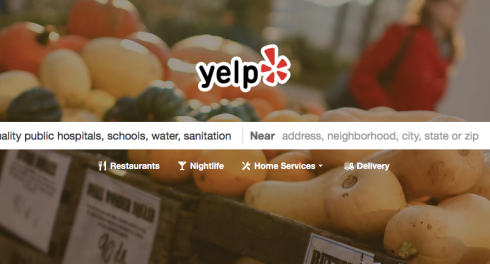In case you missed it…
So save the dates are out for this summer’s Open Government Partnership Summit, yet host country Georgia is facing criticism from civil society for recent amendments to its laws on access to information and public broadcasting. In Pakistan, 20 international organizations – which includes ActionAid, Open Society Foundations, Plan International and World Vision – were expelled by the government in December. In DRC, the government ordered cutting off Internet and mobile services ahead of protests against the President. In Malawi, the government increased the registration fee of NGOs by almost 1900 percent, which civil society laments as a government plot to stifle civic space. Meanwhile, millions of Iranians are fighting back government online censorship through an application developed in Toronto.
Looking at the disturbing bigger picture, Danny Sriskandarajah of CIVICUS argues that defending and promoting civic space is a necessary condition for an “accountability revolution” to transpire. He argues the SDGs lack political bite without stronger accountability from those who made promises. He may be somewhat cheered (and surprised) by an action of the Trump Administration that should be a human rights and anti-corruption win.
Perhaps less helpful is that buyers of Trump properties are increasingly keen to shelter behind anonymity. They may be worried by the banking industry new push for beneficial ownership legislation motivated by anti-money laundering risks. They will likely pay attention to the UK government’s launch of a Flag It Up campaign, including the release of Suspicious Activity Reports for tell-tale signs of money laundering.

The ICIJ has released the first of three guides on how to access the Offshore Leaks Database. Tax authorities and law enforcement are critical users of that database. For example, the Paradise Papers has provided helpful leads to UK’s tax authority (HMRC), but admits to struggling to cope with the heavy workload. Participating in the international exchange of information can also create new leads – the OECD offers an interactive tax map to check the status of tax cooperation, automatic exchange of information and the existence of harmful tax regimes. What to do about it? TAI will host a conversation on lessons on capacity building at the Tax and SDGs conference next month – in the meantime, check out this UK review of a decade of tax capacity building support in developing countries. Unlikely to be among the recommended practice – planting a 1000 mile hedge – this reminder of the extremes of revenue mobilization tactics is our favorite tax story of 2018 so far.
Once you’ve raised money, how to spend it effectively? A new study on the Philippines found that while policies and infrastructure have been set in place to improve the integrity of procurement, longstanding issues linger. Where do breakthroughs and barriers lie? One of the recommendations from the study? Make open contracting a public commitment in the OGP. Two other OGP members offered bright spots on open contracting – Bogota’s education secretary reflects on opening up contracts for better meals for students while Karolis Granickas shares the latest insights on the impact of the Prozorro reforms in Ukraine, buoyed by a vote for open state monitoring of procurement. Which left us wondering – how will Colombia, Ukraine and the Philippines fare at the IBP 2017 open budget survey? Publication is just a couple of weeks away.
It is fitting that those drafting the State of Open Data report– a review of developments over the past decade – create a suitably open process. Read the details and contribute to outline scans for each topic covered. Can’t wait for the report? Here are some recommendations – modules on achieving impact with open data, what good open data looks like, a practical guide to building future proof open data portals, and a curation of updates by Open Data Watch.
From Elon Musk to Stephen Hawking the warnings against artificial intelligence proliferate. Yet could open data boost AI’s reputation? Data fuels AI and algorithm, and so bad data results in devastating and discriminatory outcomes. Open data could help, argues the Web Foundation. Furthermore, “as governments adopt algorithms and AI systems to improve service delivery, we should take steps to ensure this is done in a transparent way that reassures citizens that these systems will produce fair outcomes, as well as higher quality services”. Beyond open, can we start to prepare to take advantage of linked data drawing on big data analysis? Europe may think so, having earmarked €1bn on supercomputers and big data infrastructure (still small change compared to China’s proposed $150bn investment in AI).
Last week, we featured the world’s first crypto-grants. Now, the world has a cryptocurrency pop group, dedicated to promoting the gospel of bitcoin. If you can’t make it to their Tokyo concert, have a listen to their first single here.
A Kurt Vonnegut fan? We’re glad to have stumbled upon this interview (with accompanying illustrations) on the different “shapes” of stories. Do watch out for our upcoming publication on using stories to demonstrate impact. Key to stories that are accurate, credible and compelling? Listening. Jen Wilka emphasizes the potential of listening to beneficiaries, recalling similar advice on managing power inequities between funders and grantees – “listen more, speak less”. According to Chris Cardona of Ford Foundation, “If philanthropic decision-makers do not have sufficient connection or access to lived experiences of the people we seek to benefit, the quality of our decision-making will suffer and our impact and legitimacy will be lessened.” Perhaps the next generation of CEOs in the non-profit world will influence donor thinking – to get a sense of how, get a sense of how millennial civil society heads think and lead.
Thanks for all your positive feedback and helpful comments over recent months. Keep them coming. And we are always open to suggestions on how we could further improve TAI Weekly to better serve the TAP community.
TAI spotlight
- Why Does Identity Matter? | Omidyar Network – 1.1 billion people face identity insecurity. How to close this gap in the digital world? Check out ON’s Digital Identity initiative
- Empowering Citizens to Fight Corruption | Omidyar Network – How does SERAP re-think approaches to fighting corruption in Nigeria?
- Legal Troubles Loom for Equatorial Guinea’s Leader | Open Society Foundations – Can the international system catch up with an autocratic leader?
- Giving Teens a Seat at the Table and a Say in Policy | MacArthur Foundation – What if teenagers developed policy recommendations for your city? Check out how one organization does it
Of potential interest…
- What does the future hold for COPASAH? – Insights from network at intersection of health and social accountability
- Lankelly Chase, 360giving and Foundation Transparency – one donor’s new perspectives on walking the talk on funder transparency.
- Tip: Remember This Advice for Submitting FOI Requests – Take it from a journalist who has submitted 1,018 FOI requests
- OGP Civil Society Engagement Survey – 2017-2018 – Spare a few minutes to feedback on the OGP process in your country.
- A Really Bad Blockchain Idea: Digital Identity Cards for Rohingya Refugees – Provocative blog on some of the pitfalls in applying blockchain solutions in international development
- The Rising Wave of Nonprofit Journalism – Radical shifts in the journalism business model
- What I Use to Visualize Data – List of helpful tools for data visualization
- Fake News – Far Reach, Limited Impact? Study on implications for US electoral politics suggests primarily affirming the partisans
- What It’s Like to be a Facebook Content Moderator? A former moderator tells her story
Calls: Proposals, speakers, papers and course invites
- Advocate Europe – January 16, 2018
- Artificial Intelligence for Economic Development with CEGA and World Bank – January 19
- Application to Conduct Lit Review on the Effects of E-Governance Programs for USAID – January 28
- Natural Resources for Sustainable Development: The Fundamentals of Oil, Gas and Mining Governance (facilitated MOOC) – February 5
- Gender Data Impact: Call for Stories – March 8
- ICFJ Knight Fellow, Data Journalism, Central/Eastern Europe
On the calendar…
- Measuring the Hard to Measure in Development (webinar) – January 16
- EGAP: Elections and Political Accountability Metaketa research and findings – January 18 (Stanford, California, USA)
- Fighting Corruption in the Extractives Industry (webinar) – January 23
- Tax, Urban Tech, Data, Identity, Payments & Security for the Public Sector – January 23 (Jakarta, Indonesia)
- USAID CLA Challenge Week – January 22- January 26
- A Fresh Take on the Funder-Grantee Power Dynamic: A Conversation On Supporting High Performance (webinar) – January 30
- Open Budget Survey 2017 Release Event – January 31, Washington, DC; February 6 (London, UK)
- Blockchain for International Development (online course) – January 22 -February 16
- On Think Tanks Conference – Feb 13-18 (London, UK)
- Staying Connected (with grantees and beneficiaries webinar)- February 13, 2018 (webinar)
- Taxation and SDGs – First Global Conference of the Platform for Collaboration on Tax – Feb 14-16 (New York)
- Data on Purpose: The Promise and Pitfalls of the Connected World – February 15-16 (Stanford, CA)
- Conference on Fairness, Accountability and Transparency (in tech systems)– February 23-24 (New York, USA)
- Open Data Day 2018 – March 3 (Global)
- Innovations in Participatory Democracy Conference – March 8-10 (Phoenix, Arizona, USA)
- Collective Impact Convening– April 3-5, 2018 (Austin, TX)
- A Return to ‘Governance in Dark Times’? Creating Spaces for Citizen Dialogue, Encouraging Engagement in Public Life, and Ensuring Government Transparency and Accountability – April 12-14 (Orlando, Florida, USA)
- TicTec 2018: The Impacts of Civic Technology Conference– April 18-19 (Lisbon, Portugal)
- Grantmakers for Effective Organizations National Conference – April 30 – May 2, 2018 (San Francisco, CA)
- RightsCon (human rights in the digital age) – May 16 – 18 (Toronto, Canada)
- OGP Global Summit 2018 – July 17- July 19 (Tbilisi, Georgia)
- The Future is Open: 5th International Open Data Conference – September 20-21, Buenos Aires
- International Anti-Corruption Conference – October 22-24 (Copenhagen)
Love us or hate us? We’d love to hear from you on how we can further improve TAI Weekly to better serve your needs in program management on the transparency, accountability, improved grantmaking and civic space. Please direct your feedback to [email protected]
TAI Weekly is a weekly curation of updates from donor members as well as news, tools, research, and events relevant to our four work streams: data use for accountability, taxation and tax governance, strengthening civic space, and learning for improved grant making. Made available every Tuesday. The TAI Weekly is in no way a reflection of TAI member views or thinking.


